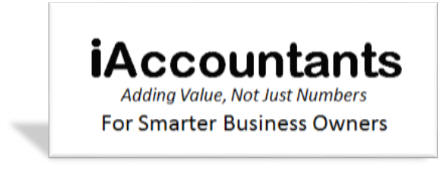Business And Financial Wisdom You Can Put To Work

Personal Growth

How do you succeed in the
21st century? Be useful.
Never has there been a better time to be an entrepreneur. We have
entered an era in which many of the foundations of everyday life have
changed. Large bureaucratic organizations everywhere are faced with
turmoil and disintegration, and consumers in every sector are
increasingly wary and unhappy with the products, services, and
experiences they receive from them. This is the age of the individual,
and entrepreneurs are far better suited to this kind of world than
bureaucracies, because entrepreneurs are specialists in the one resource
for which there is a never-ending demand: usefulness.
The Usefulness Economy.
Consumers today are actively seeking unique, alternative ways to satisfy
their immediate and long-term needs and aspirations. A business is
useful to the degree that it helps people achieve these goals.
Unlike inwardly-focused, status-protecting bureaucracies, entrepreneurs
have the organizational and intellectual flexibility, along with the
depth of relationships, to be an immensely useful part of their clients'
and customers' lives.
This parallel system of creating value — "The Usefulness Economy" —
operates on seven principles:
Organizational blindness.
The larger an organization is, the blinder its members, as a collective,
become to outside changes. Huge opportunities exist for entrepreneurs to
be useful in ways that large organizations can't be.
Individual complexity.
A single individual is far more complex than the biggest organization.
Entrepreneurs are in the best position to respond to the needs of people
who are at once empowered and confused by the myriad opportunities
offered by advances in technology and their offshoots.
Endless desire.
No matter how good something is, people will eventually want something
new, better, and different. Because entrepreneurial enterprises are
capable of constant innovation, they always appear useful.
Infinite aspirations.
The interests, needs, and aspirations of individuals are always
expanding in unpredictable ways. Entrepreneurs can be key players in
helping individuals create the custom-designed careers and lives that
give them more and more freedom and capability.
Constant differentiation.
Every individual wants to differentiate himself or herself from everyone
else in some important way. In this age, diversity is favoured over
conformity, and entrepreneurs are ideally situated to help individuals
benefit from "creative inequality."
Timely usefulness.
In everyday life, people will always place a high value on "usefulness
in the moment." Clients and customers will always jump at the
opportunity for alternatives to bureaucratic indifference, stubbornness,
and complexity. Entrepreneurs can capture this spirit by identifying
people's most crucial issues, then implementing solutions to address
them. The more timely, unique, and useful the help, the deeper the
gratitude and loyalty clients and customers will feel.
Self-improving process.
Growing usefulness always comes in the form of an evolving,
self-improving process. Bureaucracies don't reward their members for
telling the truth about what's wrong. Entrepreneurs, however, are in
constant, direct, evolving relationships with their clientele — always
measurable in "money" or "no money." This makes the learning immediate,
and rewards self-improvement as an ongoing process.
An Ever-expanding Network.
If the principles of The Usefulness Economy give an accurate picture of
the century ahead, we are at the threshold of something completely new
and different: a world where bureaucracies are continually replaced by
networks of entrepreneurs offering useful, evolving processes.
How would your business change if you thought about it in terms of
increasing its usefulness? This is the measure that others will apply,
and this perspective may also provide you with insights about new ways
to create value — or, in other words, to be useful. The greater your
usefulness, the bigger your future.
© 2007 The Strategic Coach
The
Strategic Coach


Communities of Practice

Insights and Know How



TeamStart Publishes Trusted Business and Financial Wisdom
TeamStart is a registered trademark owned by Info L inc. Copyright to articles indicated in article. The rest is copyright © 2016 Teamstart and Info L inc.